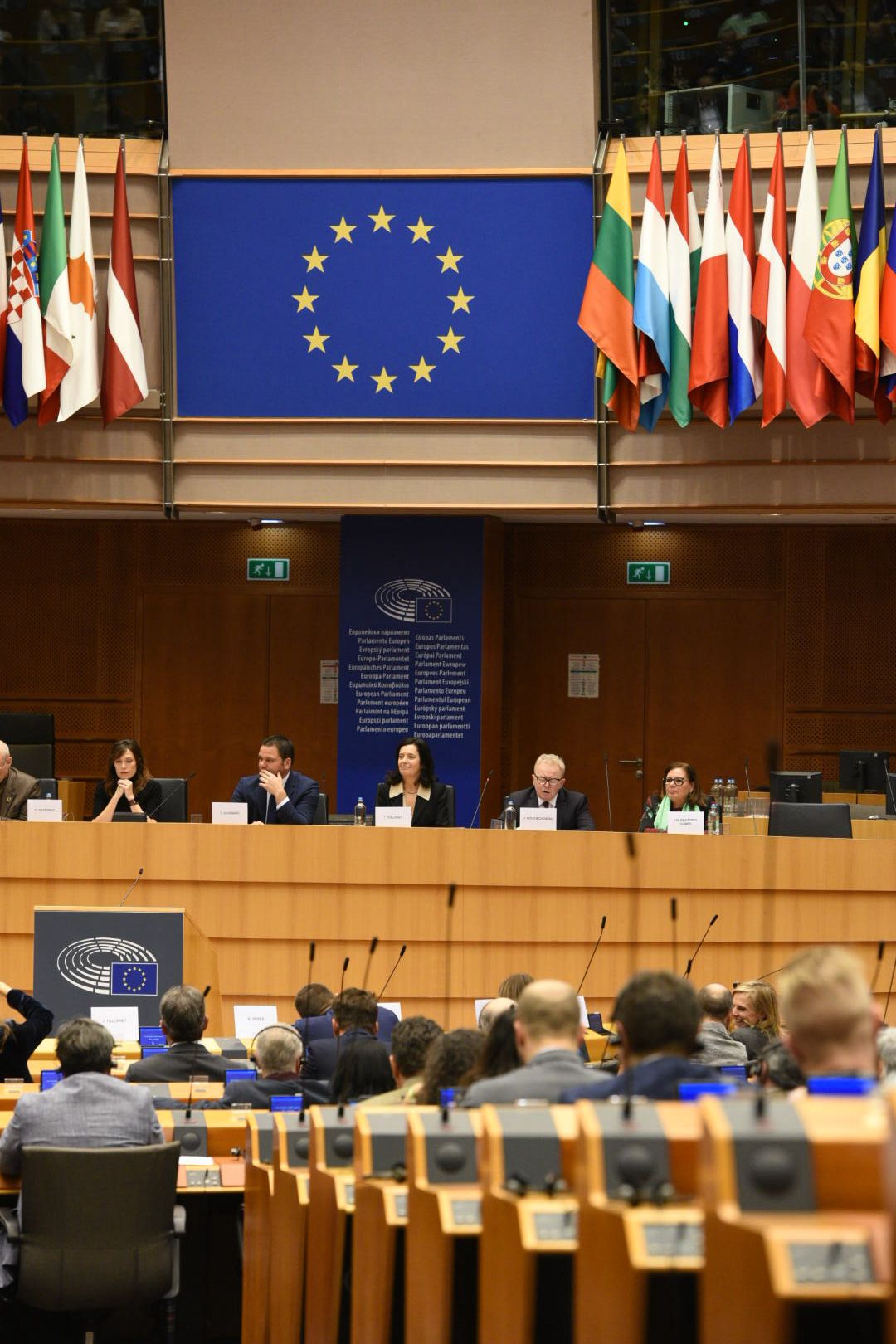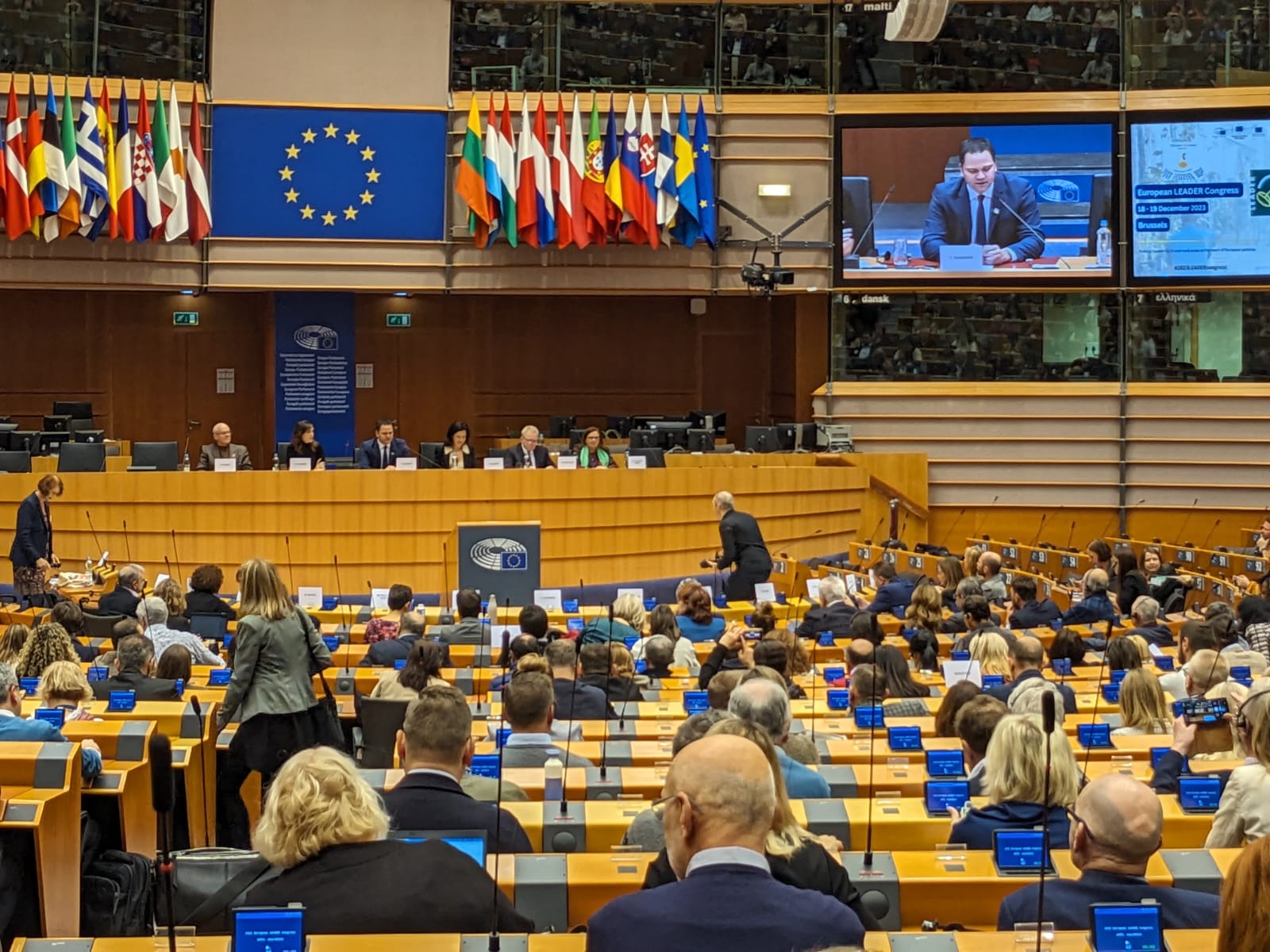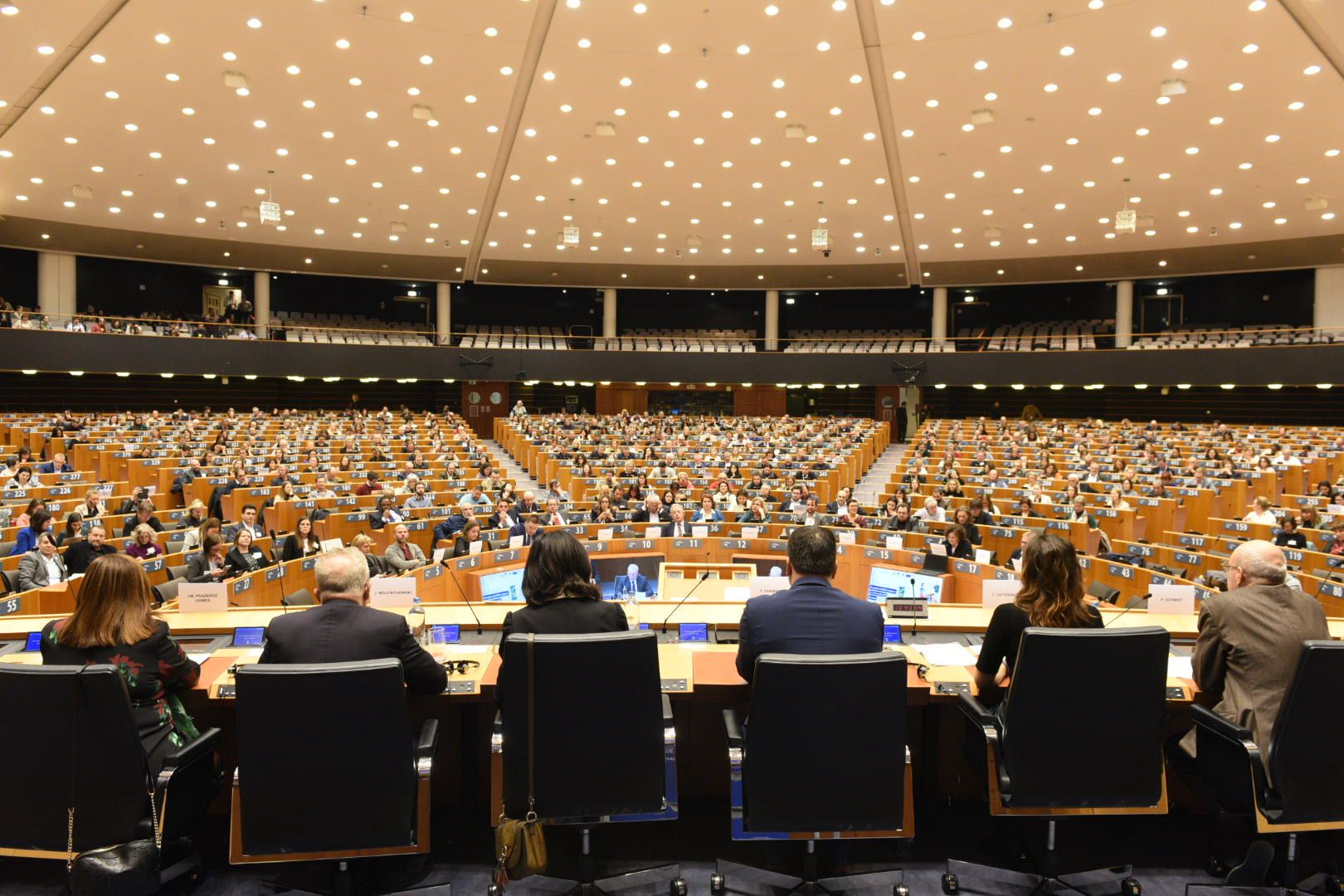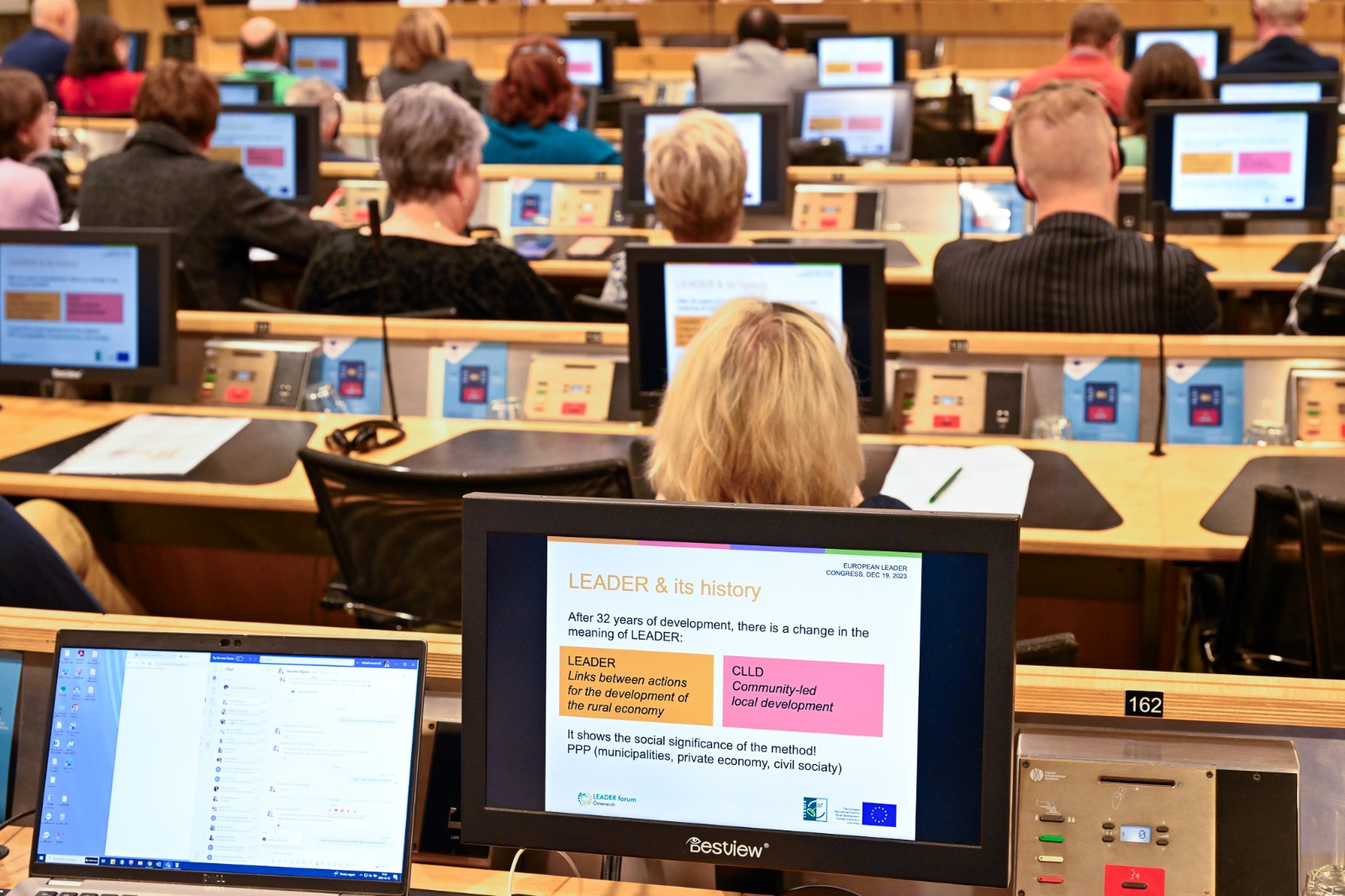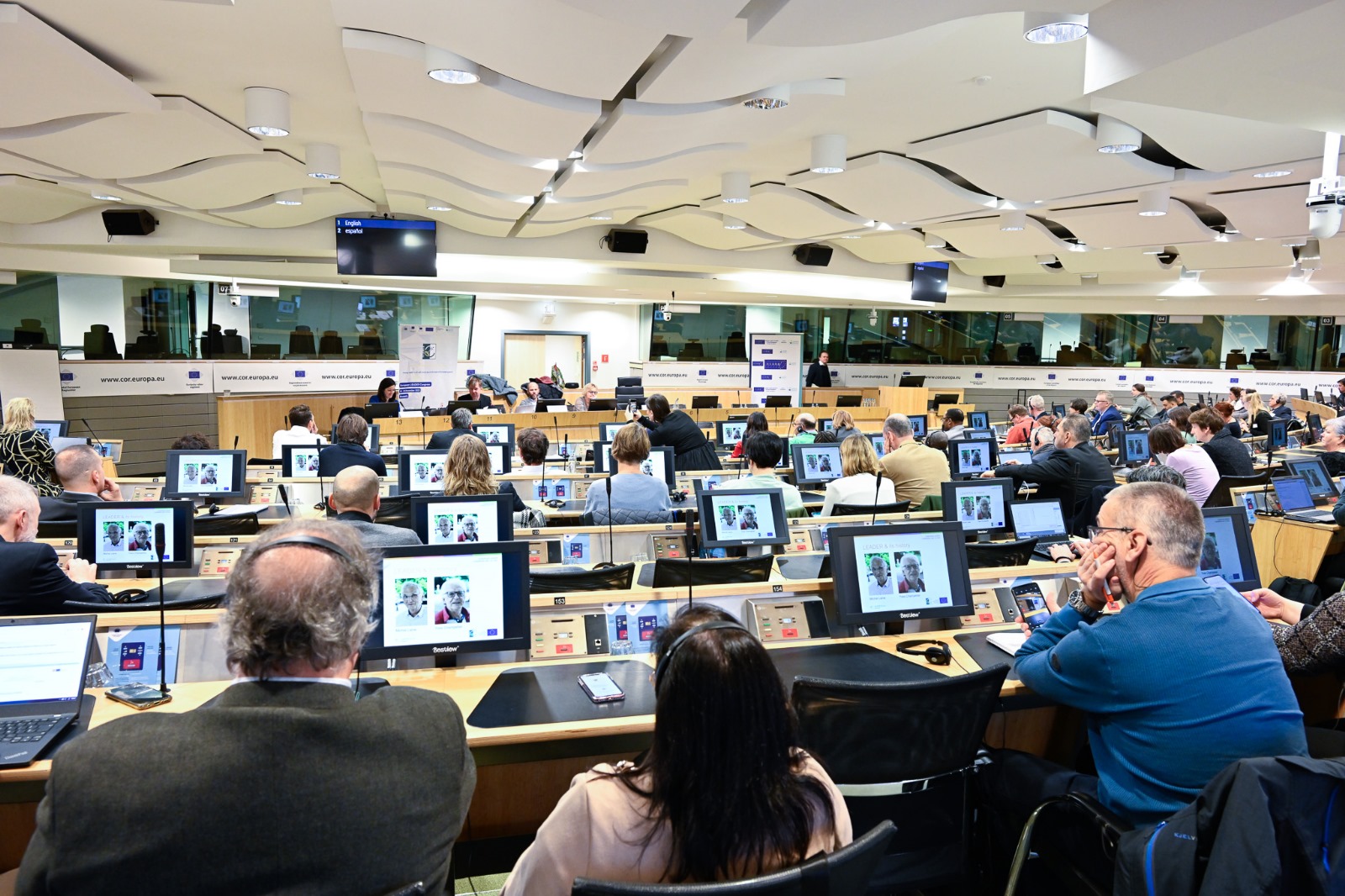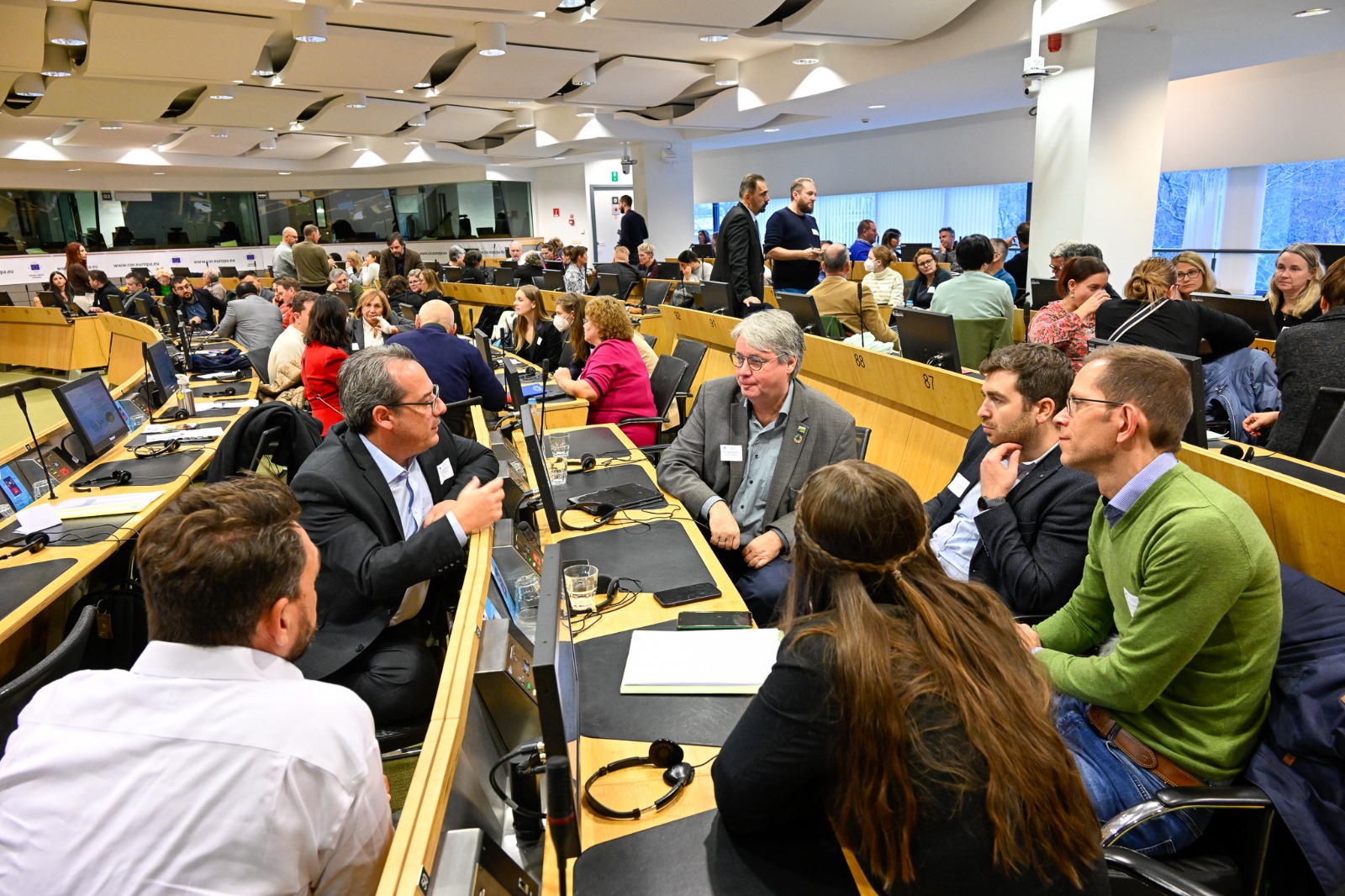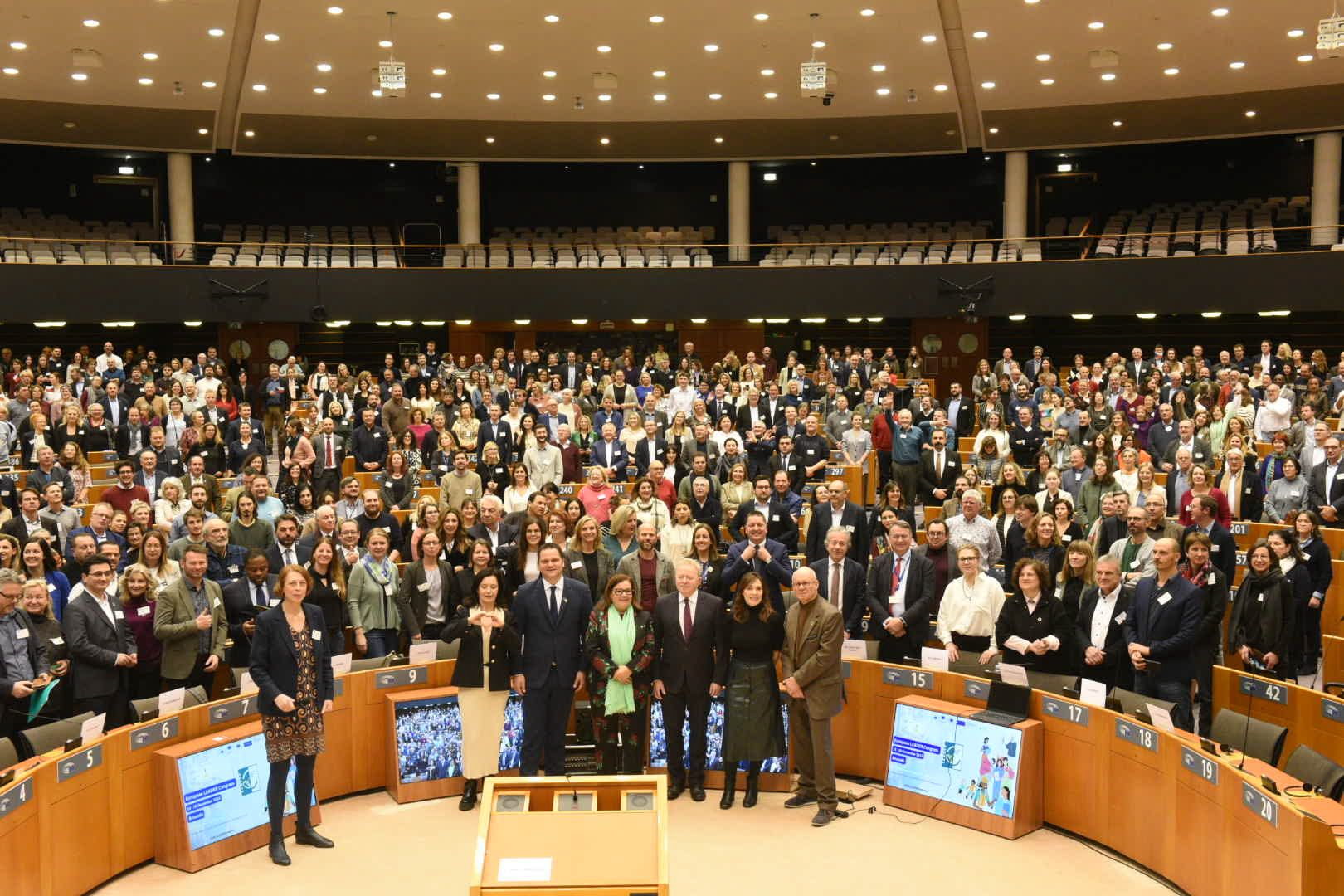On the occasion of the European Congress of Rural Territories engaged in the LEADER rural development programme, held on 18–19 December 2023 in Brussels, 800 representatives from 36 EU member states and candidate countries gathered to discuss the role of rural development in European policies.
A few months ahead of the June 2024 European elections and at the start of the 2023–2027 European programming period, rural stakeholders from across Europe gathered in Brussels for a congress held in the hemicycle of the European Parliament. This unprecedented event was organised in partnership with the European Commission, the European Committee of the Regions and the European Economic and Social Committee, at the initiative of the French presidency of the ELARD network, the European federation of LEADER national networks.
The congress highlighted the importance of the LEADER programme and, more broadly, the role of rural development in EU policies. Within the framework of the consultation on the future of the Common Agricultural Policy post-2027, it offered the Commission, the Parliament and the Spanish Presidency of the Council of the EU the opportunity to reaffirm their support for rural development actors.
The work was structured over two intense days: a first day in the European Parliament hemicycle in plenary session, followed by a second day of workshops hosted by the Committee of the Regions and the European Economic and Social Committee.
“This congress was a historic moment. For the first time since the launch of the programme in 1991, European representatives of the LEADER programme were welcomed in the European Parliament hemicycle, the beating heart of European democracy. This gathering, which extended beyond the current borders of the European Union, conveyed a clear message: rural areas are entitled to their share of Europe, for they are Europe in all its territorial diversity, and they hold part of the answers to the EU’s major challenges. LEADER, and more broadly community-led local development, appear more than ever as one of the key responses for building a Europe closer to its citizens,” stressed Thibaut Guignard, President of ELARD.
Placing rural territories at the heart of EU policies
Launched in 1991, the LEADER programme – the EU’s bottom-up, participatory rural development policy – is the only European programme dedicated to supporting rural development projects. LEADER relies on community-led local development, and is based on experimentation, cooperation, knowledge sharing, dissemination of best practices, and pooling of resources and networks.
With the participation of Janusz Wojciechowski, European Commissioner for Agriculture and Rural Development, Carolina Gutiérrez, representative of the Spanish Presidency of the Council of the EU, Isilda Maria Prazeres Gomes, Chair of the NAT Commission of the Committee of the Regions, and Peter Schmidt, Chair of the NAT Section of the European Economic and Social Committee, this European event underlined the added value of LEADER and its influence on the shaping of new rural development policies, particularly in the context of the European Rural Pact.
“LEADER is not just a European fund; it is one of the few approaches that democratically structures the European project and has, since 1993, ensured the presence and visibility of the European Union in every municipality, in every village. More than a financing tool, LEADER is a rural development programme with its own foundations and remains one of the most popular EU measures alongside Erasmus. The European Rural Pact is an important first step for rural areas, but it requires adequate funding, which today is limited to LEADER-CLLD. We cannot meet all challenges with only 5% of the EAFRD. It is therefore imperative to strengthen LEADER-CLLD in post-2027 EU policies, regardless of the framework or solutions, but with real financial means for LEADER and rural development,” emphasised Thibaut Guignard.
His remarks were echoed by Janusz Wojciechowski, European Commissioner for Agriculture and Rural Development:
“We are convinced of the importance of LEADER and of rural communities. What was initially a vision has now become an essential tool for citizens, authorities and Member States. Today, thanks to LEADER’s ambition and efforts, we are implementing the long-term vision through the Rural Pact. But to achieve our ambitions, we must strengthen the LEADER-CLLD approach.”
The congress concluded with the words of MEP Irène Tolleret, who supported its organisation:
“LEADER is a tool of resilient and ambitious rurality; we must strengthen it in the next programming period. The voice of rural territories and the needs of LEADER actors must be placed at the heart of the roadmap for the post-2027 programming period.”
All discussions culminated in the unanimous adoption of a resolution presented by ELARD in the hemicycle at the close of the first day. The resolution is based on the following principles: strengthening the role of LEADER-CLLD in EU policies, developing new financial resources, simplifying and facilitating access to funds, and starting work now on the future of LEADER to allow sufficient time to assess all proposals.
An appeal for Europe, just months before the European elections
Just months ahead of the June 2024 European elections, the Congress was also the occasion to send a strong message both to rural representatives and to European institutions.
“It is essential that citizens of all generations, wherever they live, truly feel that democracy works for them, that the democratic institutions designed to serve all citizens leave no one behind, because rural areas are essential for the future of Europe. Rural areas are vital to strengthening democratic resilience throughout the European Union. LEADER is the local cement that keeps all local actors together,” underlined Dubravka Šuica, Vice-President of the European Commission.
A message reinforced by Thibaut Guignard:
“It is often regretted that rural people feel distant from Europe. We must break the perception of an urban, pro-European Europe that thrives, opposed to a rural, conservative and eurosceptic Europe that feels left behind. This is why we need to speak of Europe to rural communities, and of rurality to the European Union. Rural territories play a major role in Europe’s energy, ecological and economic transitions. We must convince rural citizens of the benefits of the European Union, or risk confirming the growing disaffection with Europe that has been expressed since 2005. Taking ruralities better into account in the European project could help shield Europe from euroscepticism and the return of nationalism.”
